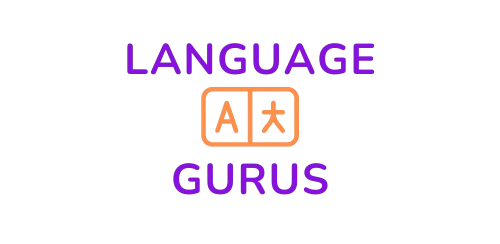Blog
The Pros and Cons of Language Learning Apps
Table of Contents
The introduction of language learning apps has revolutionized the way we learn new languages. These apps offer convenience and flexibility for learners. However, like any tool language learning apps also come with their pros and cons. In this article, we explore the benefits and drawbacks of using language learning apps and how they are in comparison with language classes. By the end you should have a better understanding of which option learning option suits what goal.

Pros of Language Learning Apps
One of the biggest advantages of language learning apps is the convenience they offer. You can essentially learn on the go, anytime and anywhere. Whether you’re on your way to work or waiting in line, you can practice whenever you get time. This flexibility makes language learning apps a good choice for those who wish to learn on the go.
Another benefit is the affordability. Many apps offer free versions or monthly/yearly subscriptions. This allows users to start learning a new language without making a significant financial investment. Additionally, some language learning apps use gamification techniques to make learning fun and keep users engaged and motivated.
That said, while language learning apps offer such benefits they also come with their drawbacks. It’s important to consider the cons before relying on them for learning a new language.
Cons of Language Learning Apps
The main drawback of language learning apps is the lack of personalized instruction and feedback. While these apps can provide lessons, they lack the personalized touch that language tutors offer. With an app, you may not get real-time feedback or personalized guidance based on your learning pace. This can limit your progress especially if you’re struggling with certain aspects in a language.
Another downside of language learning apps is the higher chance of incomplete learning. Apps often focus on vocabulary and grammar and may not provide enough practice for speaking and listening. Without regular conversation practice it can get difficult to achieve fluency. Additionally, language learning apps might not introduce you to cultural nuances and they are important for understanding and using a language in real life situations.
Also, the motivation provided by apps may be short lived. While the element of games are engaging at first they may lose their appeal over time. Without the accountability that comes withlanguage classes, you may find it challenging to stay consistent in your learning.
Language learning apps may be the right fit for individuals who wish to learn a language because they’re travelling to a foreign country for some time and want to be able to interact with locals. Also, if you want to learn a language just for fun, then these apps are the right fit for you.
Benefits of Learning from Teachers
Learning from tutors is a better option for individuals who want to learn a language for academic purposes, work-related purposes or if they’re moving to a foreign country. Language classes offer personalized learning from experienced tutors and teachers. With classes you receive tailored feedback about areas that need improvement.
By knowing the areas where a learner needs to improve, learning a language becomes easier and faster. At Language Gurus, our language tutors and teachers focus on your language-learning goals and ensure you progress at your learning pace and improve.
Language classes also provide the opportunity for real-time interaction and learning. Unlike language learning apps, classes provide a social learning experience. Learners can practice speaking with their tutors, ask questions and engage in conversations that occur in real-life situations. This interactive learning experience helps in building confidence and achieving fluency much faster.
Additionally, online language classes offer a structured and personalized learning experience. At Language Gurus, we provide personalized lessons that cover all aspects of a language including grammar, vocabulary, pronunciation and cultural insight. This ensures a well-rounded learning and prepares students for real-world communication.
Choosing Between Language Learning Apps and Tutors
When deciding between language learning apps and classes, it’s important to consider your learning goals. Apps are great for casual learners who want to practice on the go. They offer convenience, affordability and a fun way to learn a language. On the other hand, if you want to learn a language for academic or work-related purposes then online language classes are a better option for you.
Online language classes by Language Gurus are designed to help you achieve your language goals quickly and effectively. Our experienced language tutors and teachers offer personalized lesson plans that align with your learning pace and goals. Additionally, we offer flexible class timings, affordable payment plans and a free demo class so that you can decide if we’re the right fit for your learning needs before you commit to anything.
To conclude, language learning apps offer many advantages but also have limitations. Consider your reasons for learning a new language before you decide. While apps are great for casual learning, language classes offer a more structured and personalized learning experience.
Frequently Asked Questions (FAQs)
Can you be fluent with Duolingo?
Language learning apps such as Duolingo teach you phrases and words in a new language, however, to become fluent in any language, it’s important to practice conversation in a learning environment. If you want to become fluent in any language, learning from tutors is your best bet to achieve this goal.
Which is better, language learning apps or language classes?
Depends on your goal. If you’re only interested in casual learning then language learning apps are a good fit for you, however, if you want to become fluent for academic purposes or work related purposes, then classes are a better option.




